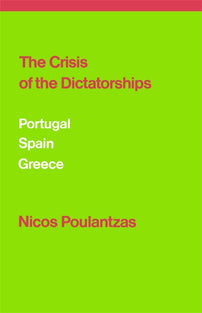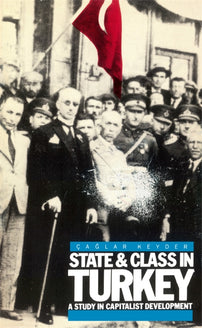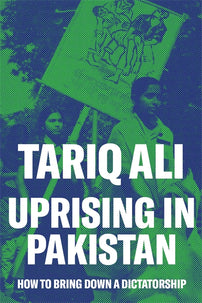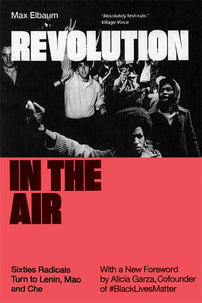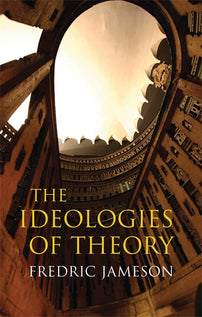Trapped In Between: 1968 in Greece and Turkey
The 1960s explosions in Greece and Turkey were neither of the First or Third Worlds, the core or the periphery: they combined elements of both.

In 1968, just as revolutionaries in Italy and France declared that “Vietnam is in our factories” and as student activists in the US schemed to “bring the war home,” people in Turkey and Greece waged their own struggle against imperialism. On 17 July thousands of protesters marched down to the Bosphorus strait in Istanbul to protest the landing of the US Navy’s Sixth Fleet, which had recently returned from the Six-Day War. The protesters, mainly students from nearby Istanbul Technical University, carried signs reading “Guardian of American Imperialism: Six Fleet, Get Lost!” They tried to prevent the American officers from disembarking and, when that failed, managed to physically throw a few of them back into the water. They wanted the Sixth Fleet, and the Cold War interventionism it symbolized, out of their harbors.
In Greece, the war had already been brought home — in the form of a nightmare. On 21 April 1967, tanks rolled through Athens and turned their weapons on the Parliament in Syntagma Square. Spooked by growing youth unrest and unwilling to countenance the possibility of the right-wing stranglehold on the country being loosened, a clique of US-supported, fascist colonels took control of Greece. The Junta cleaved the Greek 60s in two, forcing the newly flourishing Left of the early 1960s to adopt more militant methods as it was pushed, once again, underground. Initial attempts at resistance were scattered and ineffectual. However, Greek radicals never failed to attack US imperialism, which they blamed for the dictatorship. Throughout the Junta-period (1967-1974) statues of US President Harry Truman were repeatedly blown up in Athens, just as there were attempts to car-bomb the US embassy. In 1969 a bomb targeted a less obvious symbol of Cold War domination: the Athens Hilton. Until resistance in the universities grew strong enough to directly take on the Junta in the 1970s, these merely symbolic attacks were some of the few lights that punctured the darkness.
The Cold War in the Eastern Mediterranean
The Cold War is the linchpin to understanding the specific contours of the long 60s in Turkey and Greece. Despite minimal contact between Greek and Turkish movements, the two sides of the Aegean were united in opposition to their shared position within the global order. After WWII it was US interventionism that united Turkey and Greece, transforming these off-again, on-again enemies into “two parallel monologues” with minimal contact despite their structural similarities.
The Cold War began in the Mediterranean. Napalm was tested against the Greek partisans of the Civil War decades before the same brutality was brought to Vietnam. Greece and its neighbor Turkey were considered the first in a long line of Cold War dominoes. The US utilized the Truman Doctrine and the Marshall Plan to force them upright, using economic aid and propaganda campaigns to ward off Soviet influence and, when soft power failed, lending tacit support for military rule.
Until the end of the Cold War, historian Giulio Sapelli writes, “Portugal, Spain, Italy, Greece and Turkey. . . shared, in different measures, the common fate of forming the group of countries confronting the countries of the Warsaw Pact on the Southern European and Middle Eastern flank of NATO.” 60s politics in these Mediterranean countries was deeply shaped by integration into the Western Bloc, Gladio-style counter-insurgency forces, residual fascism, a lack of political autonomy, and uneven practices of urbanization and industrialization. Taking a longue durée perspective, we can see that another factor uniting Greece and Turkey was the legacy of the Ottoman Empire’s semi-peripheral incorporation into the world-system beginning in the eighteenth century. These ingredients — both synchronic (the Cold War) and diachronic (the experience of being "left behind" by Northern Europe) — created a particularly combustible set of conditions in the 60s, giving rise to student and worker militancy, shanty towns, social polarization, a rapidly expanding mass cultural sphere, religious nativism, Rightist false flag attacks, and coups.
Fifty years after 1968, the examples of Greece and Turkey necessarily complicate and deepen the categories we use to understand that global moment. The 60s explosions in these countries were neither of the First or Third Worlds, the core or the periphery: they combined elements of both. Turkey and Greece were firmly under the long shadow of the US and the Western Bloc, yet they contained a militant populace straining towards non-alignment. At the same time, Greek and Turkish Sixties movements encompassed rich cultural activity in music, art, and literature. Yet countercultural scenes like psychedelic protest rock were neither reducible to the influence of a hegemonic First World mass culture nor did they reject commodification outright. Any understanding of the world 68, that moment of possibility and expansion, must be able to accommodate the specific cultural-political dynamics that Turkey, Greece, and other similarly liminal countries, represent.
Neither First, Second, or Third
Fredric Jameson’s now canonical essay “Periodizing the 60s” reflects on the period from the dark days of neoliberal counter-revolution in 1984. Jameson stresses the “third world beginnings” of the North American and Western European 60s, locating the origins of the global cycle of unrest and revolt in the decolonization of British and French Africa. Though Jameson does not locate Turkey and Greece within this trajectory, just as Black revolutionaries in the US adapted the language and strategies of national liberation struggles as the basis for their politics (see the work of Cynthia A. Young) so, too, their Mediterranean counterparts took inspiration from Tri-continental movements. The examples of Algeria or Cuba were just as influential in Turkey and Greece, where activists opposed neo-colonialism under the guise of the Cold War, as they were among Black Panthers or French Maoists.
Rather than serving as a literal description of the position of their countries in the world balance of power, the strategic use of "Third World" in the Greek and Turkish contexts functioned as a heuristic to help activists comprehend the precarious place of the Eastern Mediterranean within the Cold War order. Despite the nominal independence of their respective countries, Turkish and Greek Leftists understood their struggles as fundamentally analogous to that of the decolonizing world (substantial political-economic differences notwithstanding). They, too, dreamed of becoming one of Che Guevara’s “two, three, many Vietnams.”
Even if the Three Worlds schema has fallen into disrepute, it still implicitly structures many studies of the world 60s. Despite their strategic Third-Worldism, revolutionaries in Turkey, Greece, and beyond were living in countries not obviously "First," "Second," or "Third World." And so Mediterranean struggles fit uneasily in the dominant taxonomy of (1) New Left movements from the advanced capitalist nations, (2) Prague Spring or the Cultural Revolution, or (3) national liberation struggles. Though it was capitalist, Turkey was not a member of the advanced capitalist nations. Never colonized but itself a fallen colonizer, Turkey’s 60s cannot strictly be called an anti-colonial — though that did not keep revolutionaries from adopting this language.
Similarly, Greece’s experience of economic dependency, foreign intervention, and occupation in the first three quarters of the twentieth century has strong similarities to much of the "Third World"; this remains invisible, however, since Greece is coded "European" and "Christian." Greece gets unreflexively categorized under a different disciplinary specialization than the supposedly "Middle Eastern" and "Muslim" Turkey. In all these ways, the Turkish and Greek 60s fall between disciplinary cracks. Gerd-Rainer Horn's The Spirit of '68, which laudably broke new ground by including Spain and Portugal, remains frustratingly incomplete in its purported investigation of the “Mediterranean New Left,” failing to venture east (or south) of Italy. Beyond a limited number of recent, more specialized studies, Turkey and Greece remain mostly unsituated within the world context of the 60s.
The difficulty of periodization also helps explain this absence. For instance, in using "1968" as a metonym for the larger period we lose sight of the massive strikes and riots by Greek workers and students in 1965, before the dictatorship put Greece’s 60s into slow-motion. Resistance against the Junta only came to a head in March 1973, during the legendary occupation of the Athens Polytechnic University. And from the fall of the colonels to the rise of PASOK, Leftists engaged in fascinating yet largely unknown experiments in revolutionary politics, lifestyle, and culture (as Nikolaos Papadogiannis outlines in Militant Around the Clock?: Left-Wing Youth Politics, Leisure, and Sexuality in Post-Dictatorship Greece, 1974-1981). Greece cannot fit easily within the temporal arc of the decolonization-to-oil-crisis narrative.
Turkey did have its peak year in 1968. That spring militancy spiked and the parliamentary road to socialism, previously embodied by the Turkish Workers’ Party, was largely abandoned. The youth wanted to occupy universities, march against NATO, throw American naval officers into the water — and so they did. In a move parallel to the creation of the Weathermen from SDS, Turkish Leftists escalated the anti-imperialist struggle. On 6 January 1969, newly appointed American ambassador to Turkey, Robert Kromer, attempted to visit Middle East Technical University in Ankara. Kromer’s previous posting had been in South Vietnam, as the head of pacification and counter-insurgency. In an act of arson that became legendary to the Turkish Left, persons unknown set Kromer’s car ablaze just moments after the “Butcher of Vietnam” exited. Out of the ashes of the ambassadorial Cadillac came groups like the People’s Liberation Army of Turkey.
After receiving training in PLO camps in Jordan and Lebanon, in the 1970s groups of radicals took up arms for a “Completely Independent Turkey!” As former activist Aydın Çubukçu recalls, back then “everybody thought that soon Turkey would be a new Vietnam.” This militancy was matched by massive labor unrest, as seen in the events of 15–16 June 1970 when 150,000 workers took the streets in Turkey’s industrial northwest. However, when the military took control of the country in the brutal coup of 1971, the dreams of these students, workers, and peasants were put on ice — but only temporarily. The very long Turkish 60s (rather than ending at the more widely accepted expiration-date circa 1973) continued unabated from the 1974 amnesty until the more conclusive, and unimaginably brutal, military coup of 1980.
The Question of the Counterculture
The sine qua non for the popular imagination of the "Western" 60s is the counterculture. And for this exact reason, there is a tendency among veteran revolutionaries in Turkey to downplay the cultural/artistic dimensions of local movements in order to stress the supposedly sui generis character and anti-imperialist bona fides of the Turkish 1960s, thereby distancing themselves from a cliched picture of the 60s as nothing but tie-dye and Woodstock. The stressing of culture, generational rage, and lifestyle has indeed functioned elsewhere as a technique to downplay the revolutionary politics of the 60s, as Kristin Ross has shown. And yet as the case of Turkey and Greece both demonstrate, it not quite correct to say, as one recent study does, that the non-"Western" 60s “lacked any significant or united countercultural movement.”
Cultural production and countercultural scenes were integral to the Mediterranean 60s. The fact that these phenomena necessarily differed from the overdeveloped countries, and entailed a complex negotiation with local factors and conditions, should not blind us to the correspondences. It is true, however, as Christiansen and Scarlett remark, that “turning on, tuning in, and dropping out” made little sense where activist demands were often for basic liberal democratic rights and industrial development rather than against them. Similarly, Greece and Turkey were more socially conservative than much of Europe or the US (although a dismantling of patriarchal values thoroughgoing enough to deserve the phrase "sexual revolution" was lacking in the "First World," too).
The 60s cultural scene in Turkey — with its modernist poetry, radical cinema, psychedelic protest rock, feminist socialist realist fiction, and iconic poster art — could have been the envy of San Francisco or Paris, if only the global circuits of cultural reception flowed reciprocally. As Murat Belge explained in New Left Review back in 1981, “In Turkish intellectual life, the [60s] Left enjoyed a scarcely rivaled supremacy: the greatest majority of thinkers, writers and artists were leftists, and a considerable number of them claimed to be Marxists.” From the songs of Selda Bağcan or the films of Lütfi Ö. Akad to the fiercely satirical poetry of Can Yücel and the novels of Sevgi Soysal, the period marked a renaissance for the cultural Left. This hegemony over culture is something that the post-coup Turkish-Islamic synthesis has been unable to shake.
Greek revolutionaries didn’t have the luxury of denying the cultural realm. With possibilities for direct resistance under the Junta mostly foreclosed, culture became weaponized. Fierce repression created a condition of hyperpoliticization, where even the smallest hint of subversion in a film or song was a victory against the regime. In Aesthetic Theory Adorno writes: "Greece's new tyrants knew why they banned Beckett's, plays, in which there is not a single political word.” Kostis Kornetis, in the indispensable Children of the Dictatorship, describes the resilient cultural scene that flourished under the Junta, especially after the abolition of preventative censorship in 1969. Artistic events were deeply political. Much debate took place in cinemas and concert halls. Similarly, the absurdist rock of Dionysis Savvopoulos, revolutionary anthems of Maria Farantouri, Left-wing Beat poetry of Lefteris Poulios, and subversive plays of the troop Anoichto Theatro provided essential contributions to revolutionary, anti-dictatorship energies.
Mostly untranslated and understudied, these works of Greek and Turkish revolutionary culture are in the mainstream of the world 60s. Without a better grasp of this history, we cannot begin to appreciate the position of the Left within Turkey and Greece today. They are movements as rich as they are beleaguered.
Kenan Behzat Sharpe is a PhD Candidate in Literature at the University of California, Santa Cruz. He is a founder and co-editor of Blind Field Journal.
[book-strip index="1" style="display"]
